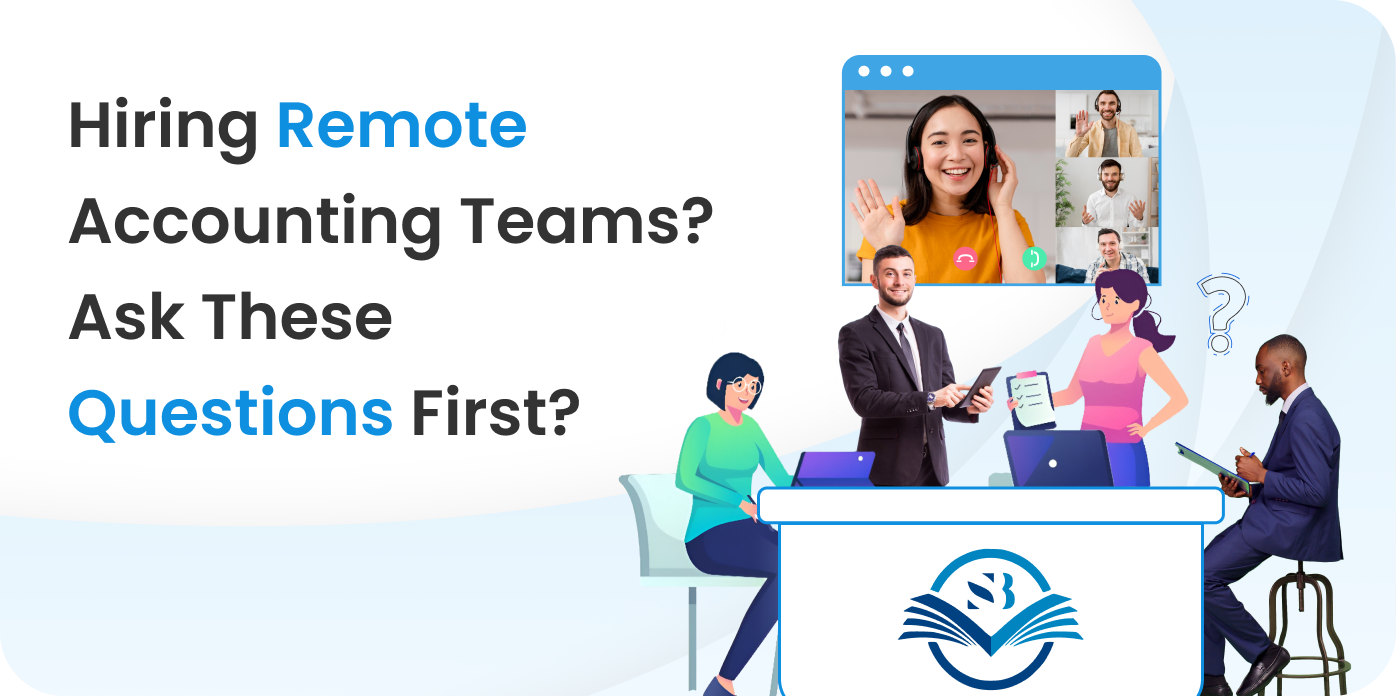According to Gartner, 60 percent of finance and accounting outsourcing contracts won’t be renewed by 2025. The reason is often simple: things were unclear from the start.
For CPA and accounting firms, the right offshore partner can create real capacity, cost savings, and speed. But the wrong one? It can lead to client risk, data exposure, and endless misalignment.
Here’s what to ask before you hire, and what great answers look like.
Communication: How Will We Work Together?
Smooth collaboration is non-negotiable. Miscommunication causes errors, missed deadlines, and unhappy clients.
Ask about:
- Tools used for communication (Slack, Zoom, ClickUp)
- Daily or weekly sync schedules
- Time zone overlap and response expectations
- Your main point of contact
Ideally, your partner should offer at least 2–4 hours of U.S. working hour overlap, along with a dedicated account lead. At SafeBooks, our pod model includes a single communication lead to avoid misrouting tasks.
Team Experience: Who’s Handling My Books?
Credentials and industry experience matter as much as cost.
Look for:
- U.S. GAAP or IRS-specific experience
- Certifications like CPA, CA, or QuickBooks ProAdvisor
- Hands-on experience in your industry (e.g. real estate, SaaS, e-commerce)
- Familiarity with your accounting software
Ask for anonymized client examples. For instance, one of our CPA clients reduced their month-end closing time by 40 percent using structured QA workflows and dedicated reviewers.
Data Security: How Will You Protect Our Information?
This is one area where you can’t afford generic answers.
Ensure the partner can explain:
- Use of company-managed devices with fixed-IP VPN access
- Data encryption standards (AES-256 at rest, TLS for data in transit)
- Regular backups and recovery testing (ask about RPO and RTO)
- SOC 2 Type II or ISO 27001 certifications
- Liability insurance or E&O coverage
As per the IBM report, the average cost of a financial data breach is now $5.9 million. Your vendor should be able to speak confidently about prevention, not just damage control.
Quality Control: What Happens If Something Goes Wrong?
Mistakes happen. The question is: how fast are they caught and corrected?
Ask:
- How deliverables are reviewed (dual review, senior approval, automated checks)
- If audit trails or logs are accessible
- Escalation process for corrections
- Staff replacement timelines in case of attrition
At SafeBooks, we follow a two-tier QA process and maintain monthly recovery drills. This ensures nothing slips through unnoticed, and if something breaks, we know exactly how to fix it.
Fit and Continuity: Will You Work Like Our Team?
A true partner won’t just follow instructions. They’ll integrate with how your firm already works.
Here’s what to look for:
- Will they adopt your SOPs, formats, and chart of accounts?
- Do they assign a dedicated team (not shared resources)?
- Do they offer training in U.S. communication and business etiquette?
- Can they match reporting formats or build custom dashboards?
Firms often overlook cultural alignment. But in practice, tone, clarity, and naming conventions all influence client satisfaction and audit readiness.
Red Flags to Watch For
Even if a vendor says all the right things, these warning signs should make you pause:
- Vague responses like “We use secure tools”
- No certifications or proof of audit compliance
- Shared logins and no team continuity
- Pushback on using your formats or templates
- No documented process for errors or escalations
According to Accounting Today, offshoring success today depends on structured processes and tight integration, not just cost savings. A lack of clarity in systems or ownership is often where things go wrong. If a partner can’t clearly explain how their team plugs into yours, it’s a red flag.
Follow-up Questions to Deepen the Conversation
Once the basics are clear, these questions help you assess maturity:
- How do you stay current on IRS changes or FASB guidance?
- Can we schedule monthly KPI or error-rate reviews?
- What’s your retention rate, and how do you handle turnover?
- Do you have seasonal surge capacity for tax season?
- What’s your SLA for urgent turnaround (same-day delivery, etc.)?
Expert Insight
“Offshore accounting partnerships only work when there is absolute clarity. Firms must ask tough questions and expect specific answers. At SafeBooks, we train every team on U.S. compliance, role accountability, and client process integration from day one.”Bindesh Jain, Tax Director (CA, CS), SafeBooks Global
A Partnership Built on Answers
Hiring a remote accounting team is no longer just about price or bandwidth. It’s about finding a team that works like yours, protects your data like you would, and helps you serve clients more effectively.
When you ask the right questions, you set the tone early, not just for work quality, but for trust, communication, and collaboration.
At SafeBooks, we encourage tough questions. Because that’s how strong partnerships begin and how they grow.
FAQS
How long does it take to onboard a remote accounting team?
Will my accounting data stay within U.S. compliance standards?
Yes, but only if your provider understands SOC 2 Type II, IRS audit trail expectations, and U.S. GAAP. Always ask about certifications and data residency protocols.
How do I ensure offshore staff actually follow our SOPs?
You should have visibility into task tracking and escalation logs. At SafeBooks, clients receive access to documentation updates, reviewer comments, and weekly performance summaries.
What happens if someone on the remote team quits?
A good partner will have replacement timelines in writing. Ask about their average staff tenure, notice periods, and backup coverage.
Can I customize how reports are delivered or how tasks are prioritized?
Yes and you should. The best offshore partners adapt to your style and systems, not the other way around.
What is a remote accounting workflow?
Is offshoring secure?
Which tasks should I outsource first?
Will I need to change all my software?
How do I manage offshore staff?
-

Director (CA, CS)
A Chartered Accountant and Company Secretary with over 11 years of experience, Bindesh specializes in direct taxation, estate planning, and statutory compliance. He helps U.S.-focused firms navigate complex tax issues with precision and foresight, while ensuring every SafeBooks engagement meets legal and procedural expectations.




